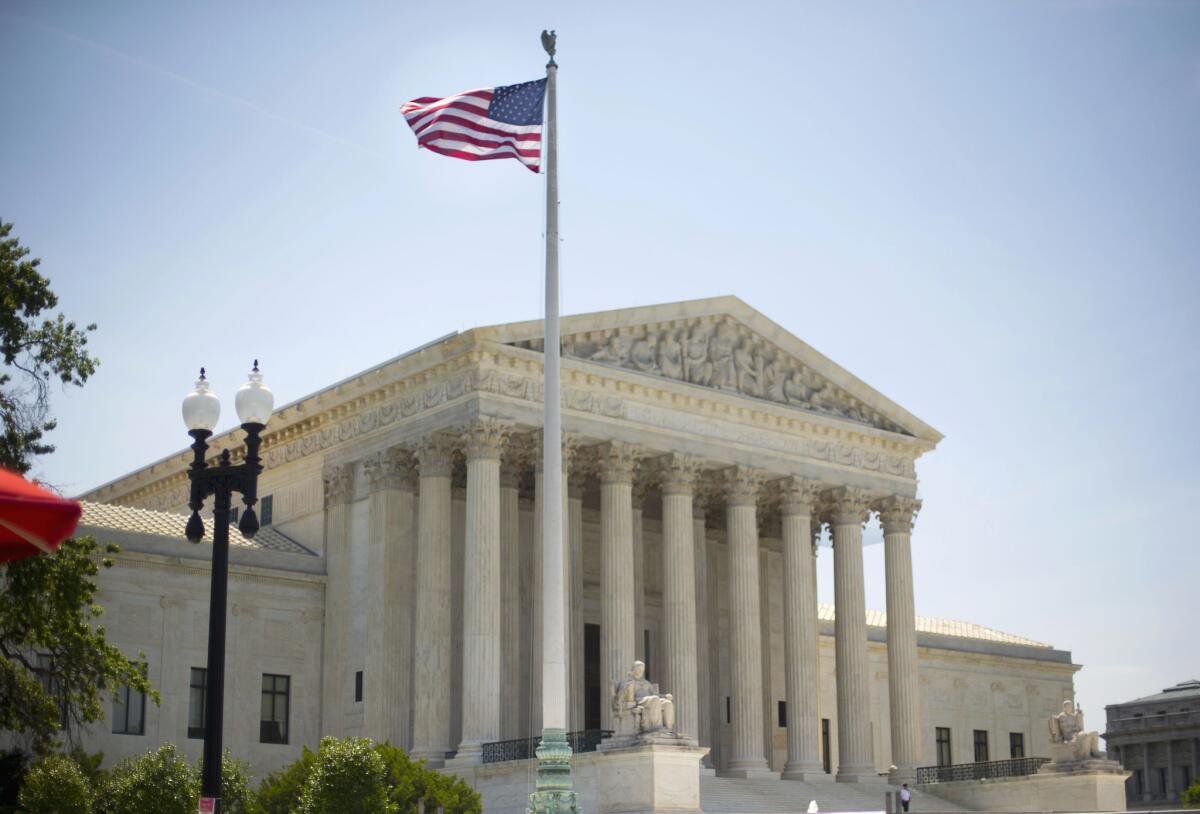Opinion: Florida’s death penalty should require unanimous jury votes

A Supreme Court decision led Florida to alter its death penalty law, but the state didn’t go far enough. While a unanimous jury is required for a murder conviction, someone can be sentenced to death on a 10-2 vote.
In a criminal jury trial, a conviction requires a unanimous verdict of guilt, whether the crime is a low-level drug possession charge or capital murder.
But in Florida, after all 12 members of a jury have found the accused guilty, only 10 of them have to agree that the defendant should die for the crime. It’s absurd to require a lower level of agreement to send someone to death than is required to find the person guilty in the first place.
Florida Circuit Judge Milton Hirsch reached the same conclusion in a decision Monday that declared Florida’s latest death penalty law in violation of the state’s constitution. That decision followed arguments a few days earlier before the state’s Supreme Court over whether the U.S. Supreme Court decision in Hurst v. Florida, which found the state’s sentencing-decision process unconstitutional, meant that all 390 people on Florida’s death row should have their sentences converted to life.
Yes, it does. If the sentencing process is unconstitutional, then the sentences are, too.
The Florida death-sentence regimen gutted by the Hurst decision was bizarre. It required a jury to reach a unanimous verdict of guilt for the charged offense, but then assigned to the jury only an advisory role in determining whether the defendant deserved the death penalty. The jurors weighed the “aggravating” factors in the case — a lengthy menu that includes whether the defendant was guilty of a previous felony, “knowingly created a great risk of death to many persons,” committed the murder in the commission of another crime and other such elements. But only seven of the jurors had to find aggravating factors existed, and they didn’t have to agree on the same factors. Then the judge — who was not told what factors the jurors had deemed to be aggravating — would make his or her own findings and issue the sentence.
In the Hurst case, the Supreme Court affirmed that only a jury can make a finding of fact. Florida, in an effort to save its death penalty, rewrote its law to say the jury must decide whether the death penalty was appropriate. But the U.S. Supreme Court didn’t say how many jurors must make that call, and the revised state law raised the threshold to 10 of the 12 jurors.
Hirsch’s decision on Monday said that no, under the state’s constitution, a super-majority is not enough. His logic is a bit attenuated, but sound. Florida’s constitution guarantees trial by jury but doesn’t specify that a unanimous verdict must be reached. However, decades of practice, and common law, set unanimity as the standard threshold for a verdict. And since the revised law calls the jury’s finding for the death penalty a verdict, then it must be unanimous.
Capital punishment is, at its core, an immoral enterprise. A state having the power to kill the very citizens it exists to protect is the ultimate in government overreach. Beyond that, the country has never developed a foolproof system for finding guilt, and the racism that courses through the nation has meant people of color receive death sentences at disproportionately higher levels than whites. And whether a murderer faces the death penalty has more to do with geography than anything else. Even within states, rates of death penalty sentences vary by county, which means local prosecutors hold significant power.
Yet ultimately, it’s the jury that decides whether a particular crime meets the state’s standards for receiving the death penalty. And it reaches that decision after hearing testimony and weighing evidence. As Hirsch wrote:
“These three axioms of our law — the unanimity rule, the presumption of innocence, and the requirement of proof beyond reasonable doubt — are joined, not only in their origin and their development, but also in their purpose. They reflect the common law’s admirable epistemological modesty — a recognition that a criminal justice system designed and operated by imperfect human beings can never be better than imperfect, and that we ought to act with restraint and discretion when we act upon the imperfect conclusions of that system. We will take no Floridian’s liberty upon a less-than-unanimous verdict, although the liberty taken today can be restored tomorrow. We dare take no Floridian’s life upon a less-than-unanimous verdict. The life taken today can never be restored.”
It’s a fatally flawed system. The least Florida can do is require unanimity by a jury before deciding to kill someone. And it should either grant fresh sentencing trials for those on death row or — and this is the preferred, more humane solution — commute the death sentences to life sentences.
Follow Scott Martelle on Twitter @smartelle.
More to Read
A cure for the common opinion
Get thought-provoking perspectives with our weekly newsletter.
You may occasionally receive promotional content from the Los Angeles Times.







